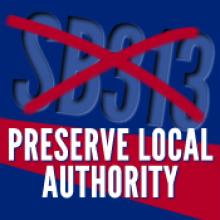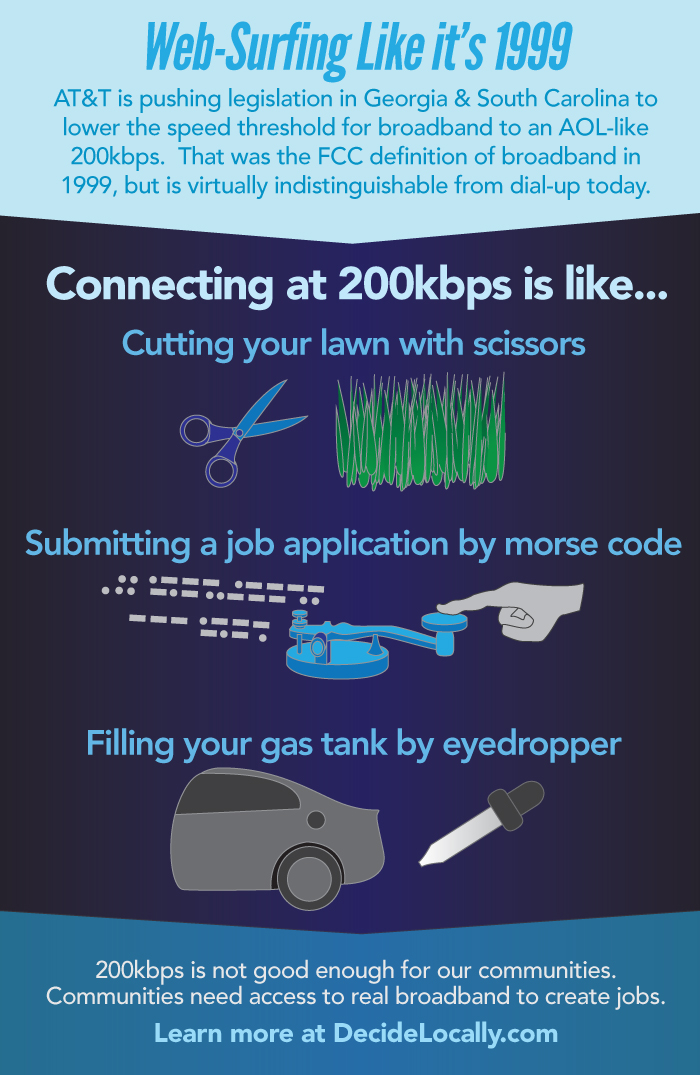South Carolina Legislature Puts AT&T Monopoly Above Own Infrastructure Needs
Last week, South Carolina's General Assembly passed H3508, the ALEC and AT&T bill we previously warned you about. AT&T, ALEC, and cable companies pushed this bill to limit broadband competition and revoke local authority to decide if public investments in broadband infrastructure are wise.
H3508 is one of the worst pieces of legislation we have seen. States usually incorporate language that "grandfathers in" existing projects as a way to avoid legal challenge and federal scrutiny of their anti-competition legislation. In South Carolina, however, crafty drafting puts one county BTOP project in the cross hairs while permitting two other projects to continue.
Below is a roundup of media coverage of the bill. We will soon release our analysis of the supposed "exemptions" to this bill but in the meantime, this coverage explains several of the problems with South Carolina's latest Monopoly Protection Act.
Ars Technica's Cyrus Farivar contacted Jim Baller, a preeminent telecom attorney and expert in broadband issues:
"States have different ways to achieve the same end—discourage, delay, or derail public broadband initiatives," wrote Jim Baller, a telecom lawyer based in Washington, DC, in an e-mail to Ars on Thursday. He noted that similar bills were introduced in Minnesota and Georgia this year, the former of which has led to a "study bill," while the latter did not make it out of committee.
"In some ways, the South Carolina bill is worst of all because it does not grandfather existing projects and would retroactively undermine federal stimulus grants that Orangeburg and Oconee Counties have received," he added.

Farivar also looked into the chief author and found:





 Feel free to spread it around. Higher quality pdf below.
Feel free to spread it around. Higher quality pdf below.

